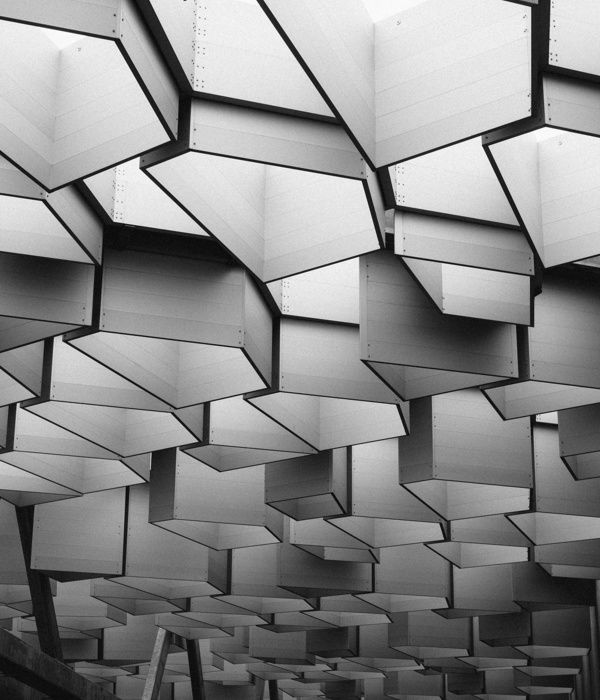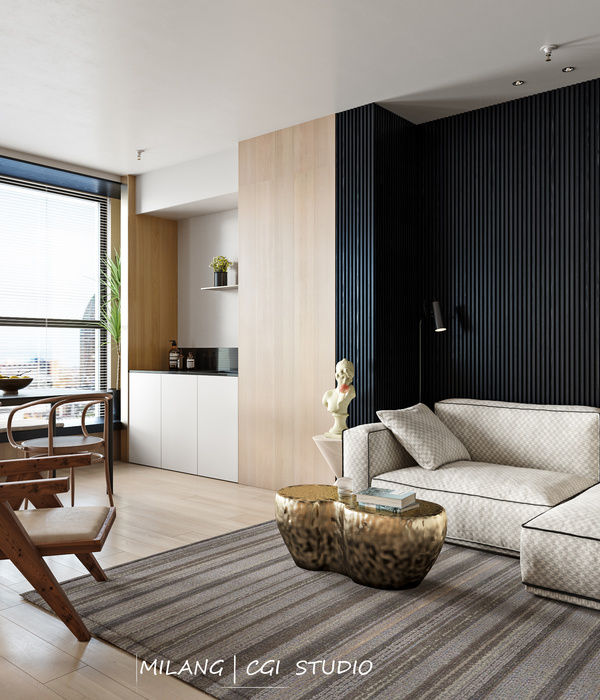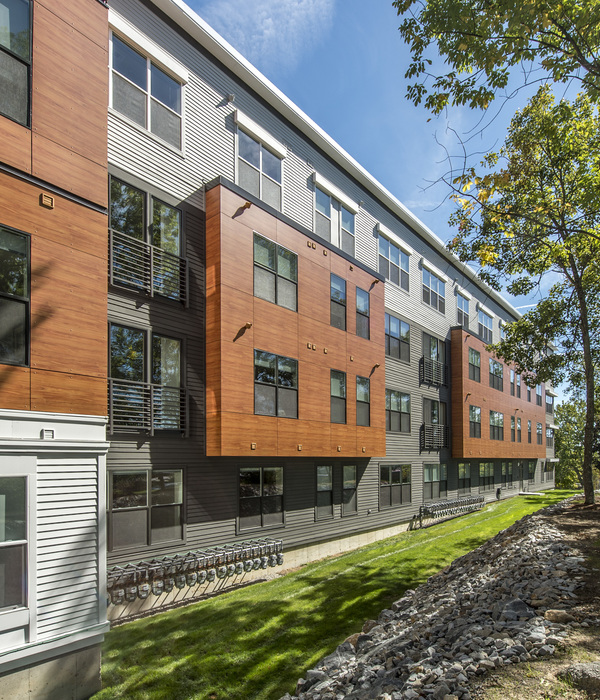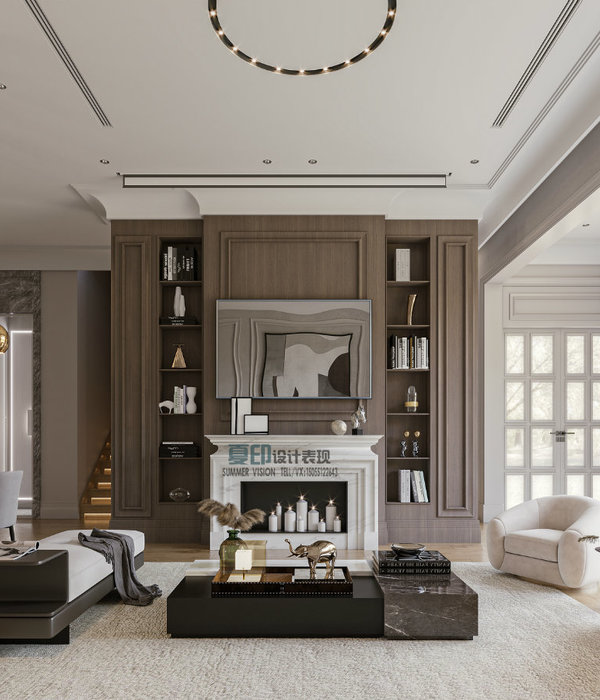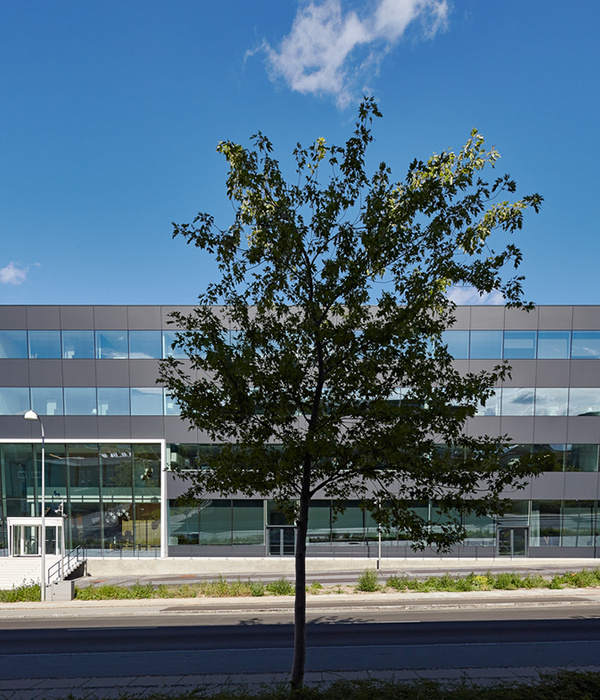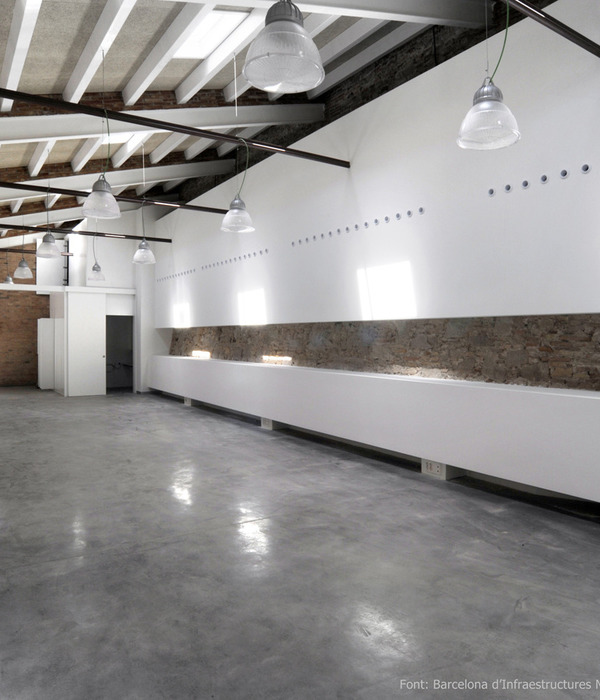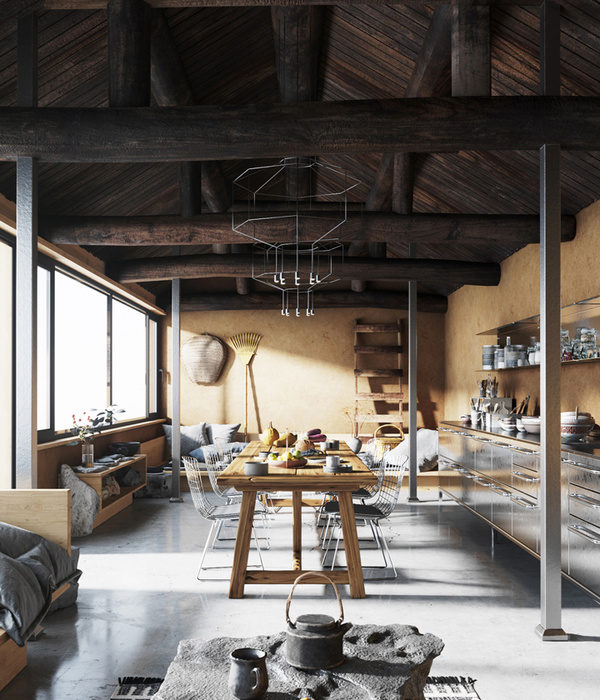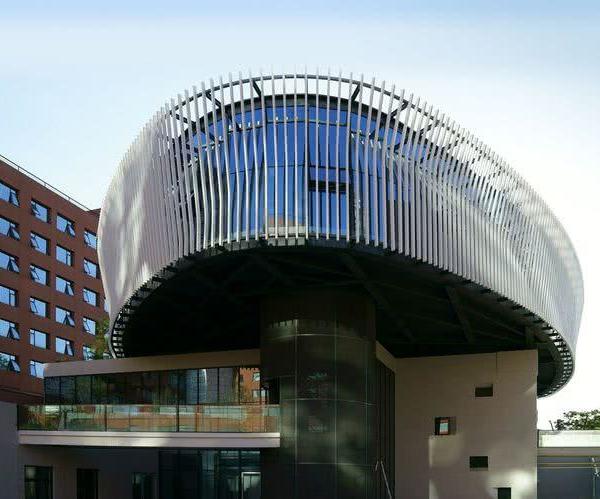三星 Seocho 项目 | 融入首尔市中心的办公综合体
© Jae Seong Lee
(C)李正胜(Jae Seong Lee)
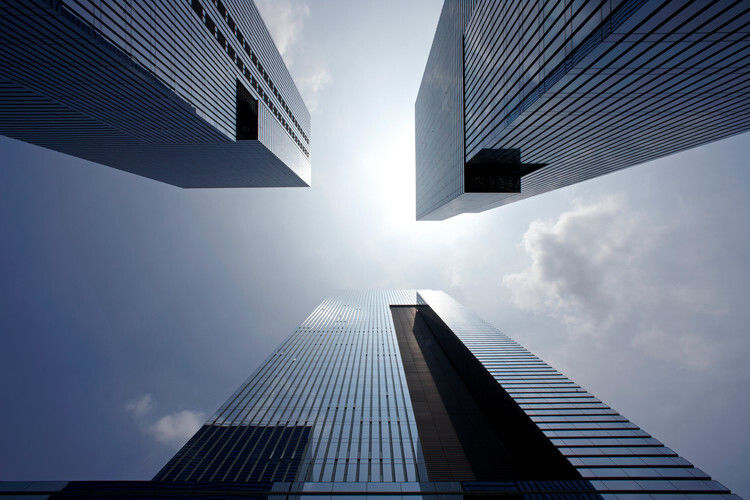
架构师提供的文本描述。三星seocho项目的设计创建了一个办公综合体,在那里建立了低、中、高层的连接,以与著名的洛克菲勒中心(Rockefeller Center)在纽约市完成的同样方式,将该项目完全融入首尔市中心的周边城市环境中。
Text description provided by the architects. The design for the Samsung Seocho project creates an office complex where linkages are created at the low-, mid- and high-rise levels to fully integrate the project within the surrounding urban context of downtown Seoul in the same manner that the famed Rockefeller Center accomplishes this in New York City.
© Jae Seong Lee
(C)李正胜(Jae Seong Lee)
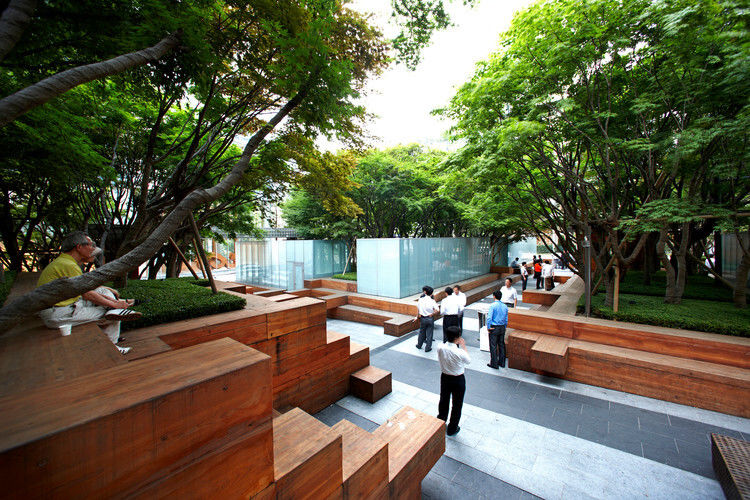
在传统的韩国木制品中所代表的象征性细木工的启发下,建筑物的聚集使用了联锁的形式,目的是将建筑物独特的程序元素交织在一起。该设计将几个较小的地段合并成一组相互关联的塔楼,将网站改造成一个企业校园。建筑物之间互相示意,以鼓励行人在整个地点移动和相互作用,并向周围的城市提供便利与现有建筑物的联系。
Inspired by the symbolic joinery represented in traditional Korean woodworking, the massing of the buildings uses interlocking forms that aim to inter-weave the building’s distinct program elements. Merging several smaller lots to create a grouping of interrelated towers, the design transforms the site into a corporate campus. The buildings gesture in towards each other to encourage pedestrian movement and interaction throughout the site, and out to the surrounding city to facilitate linkages with existing buildings.
© Jae Seong Lee
(C)李正胜(Jae Seong Lee)
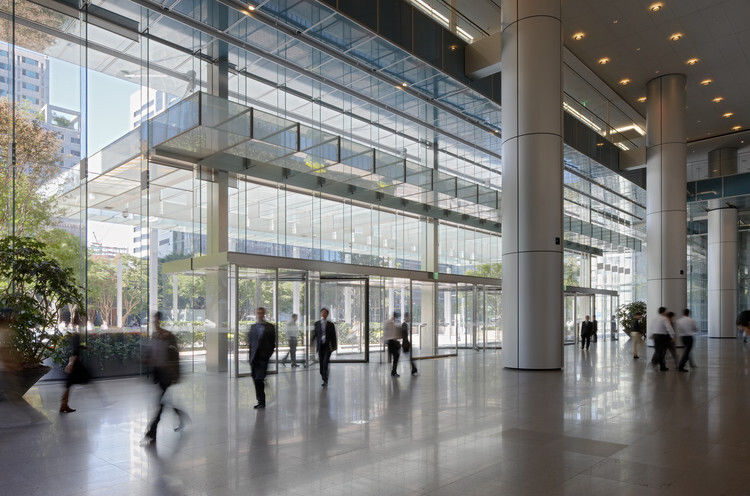
为了提高单个建筑体积的清晰度,采用两种不同的多重系统,在每个表面都引入了垂直和水平纹理,从而增强了建筑物之间的相互关系。塔之间的相互缠绕的体积之间的揭示是百叶窗,适应了一个不寻常的工程要求的小机械室在每一层,允许一个有效的,补充周边冷却系统。横向和垂直幕墙类型的对比,以及反光玻璃的使用,加强了联锁式、悬臂式塔群的戏剧性,由于百叶窗的暴露,这些塔体似乎彼此自由飘浮。
To enhance the clarity of individual building volumes, vertical and horizontal textures were introduced to each of the surfaces by using two distinct mullion systems, thereby heightening the inter-relationship between the buildings. The reveals between the intertwined volumes of the towers are louvered, accommodating an unusual project requirement for small mechanical rooms on every floor that allow for an efficient, supplemental perimeter cooling system. The contrast of horizontal and vertical curtain wall types and the use of reflective glass reinforce the drama of the interlocking, cantilevered tower masses, which seem to float free of each other, thanks to the louvered reveals.
© Jae Seong Lee
(C)李正胜(Jae Seong Lee)
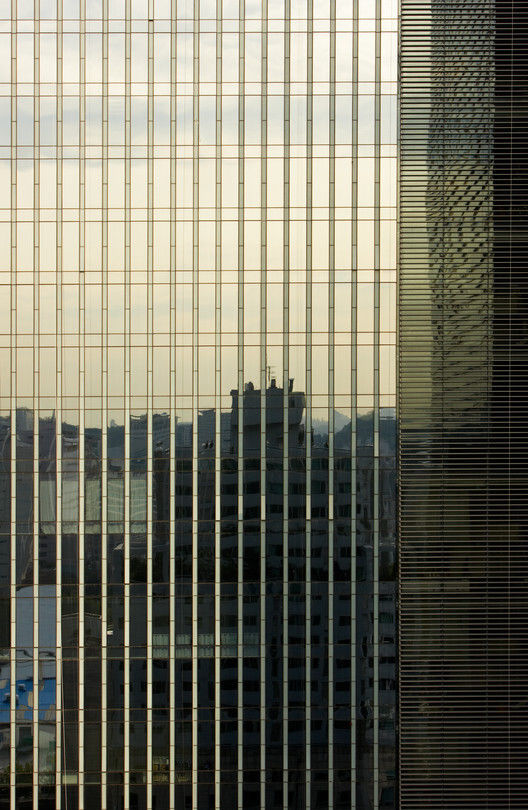
对于这两种幕墙类型,狭窄的凹槽有半透明的玻璃,而更广泛的地区是用传统的视觉绝缘玻璃单位(IGUS)。自动阴影控制通过视觉玻璃允许的光量,而凹槽的特点是所有楼层的可操作窗户。这些复杂的幕墙系统允许住户最大限度地控制采光和自然通风,尽量减少建筑物所需的人工照明、取暖和冷却量。
For both curtain wall types, the narrow recess has translucent glazing, while the broader areas are glazed with traditional vision insulated glazing units (IGUs). Automated shades control the amount of light allowed through the vision glazing, while the recesses feature operable windows on all floors. These complex curtain wall systems allow for maximal control by the occupants over daylighting and natural ventilation, minimizing the amount of artificial lighting, heating and cooling required by the buildings.
© Jae Seong Lee
(C)李正胜(Jae Seong Lee)
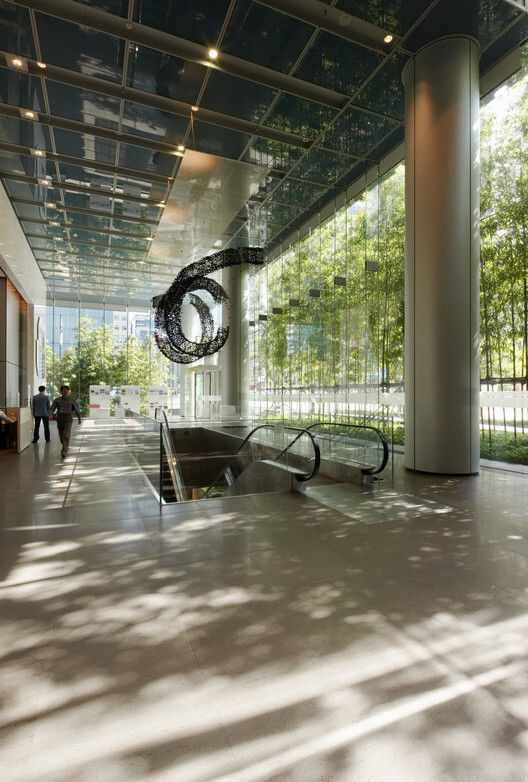
三星seocho项目占地面积238560平方米,为三星集团和各供应商/制造商提供A和B塔的办公空间,而C塔则是三星电子的新公司总部。塔C平台被分解成多个特定的计划卷,为该项目建立一个人的规模。餐饮、会议和展览活动在几个群体中进行,其中最重要的是展示三星最新技术的三星展厅。
Encompassing a total built-up area of 238,560 square meters, the Samsung Seocho project provides office space for the Samsung Group and various suppliers/manufacturers in Towers A and B, while Tower C serves as the new corporate headquarters for Samsung Electronics. The Tower C podium is broken into multiple program-specific volumes to establish a human scale for the project. Dining, meeting and exhibition functions are accommodated in several masses, with the most important being the Samsung Showroom showcasing the latest Samsung technologies.
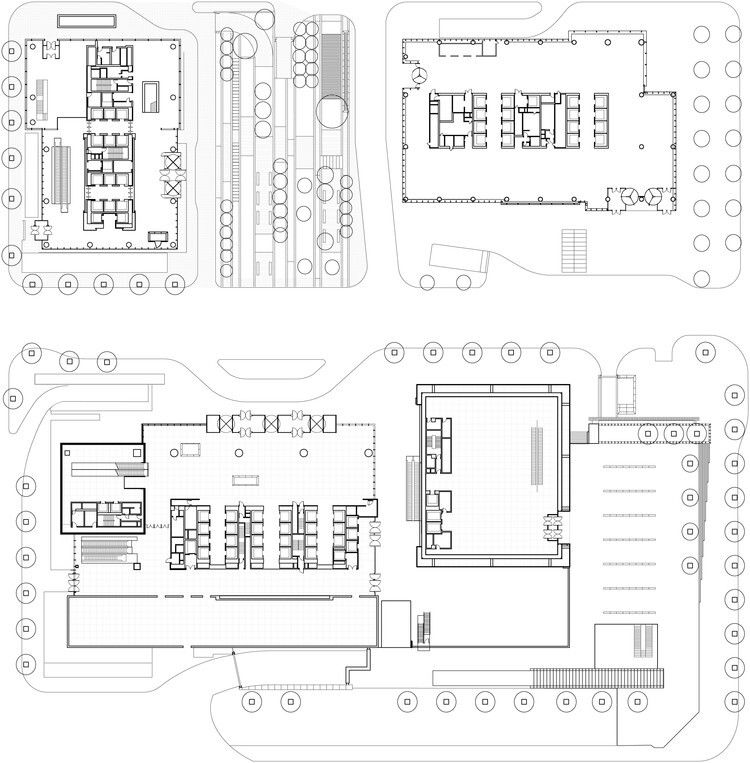
景观规划创造了统一和穿越公共区域复杂性的铺砌人行道,便利了整个场地的行人流动:A塔和B塔之间的一个公司公园,C塔讲台上的穿过街区的人行横道,以及一个大型公共广场,该广场允许公众放映电影、音乐会和其他活动,以进一步鼓励现场的社会互动。
The landscape plan creates paved walkways that unify and traverse the complexities of the public areas, facilitating pedestrian movement throughout the site: a corporate park between Towers A and B, through-block pedestrian breezeways in the podium of Tower C, and a large public plaza, which allow for public movie screenings, concerts and other events to further encourage social interaction on-site.
© Jae Seong Lee
(C)李正胜(Jae Seong Lee)
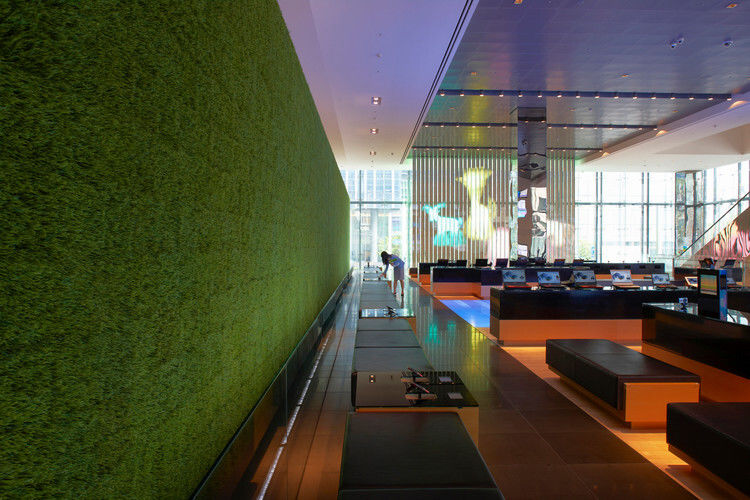
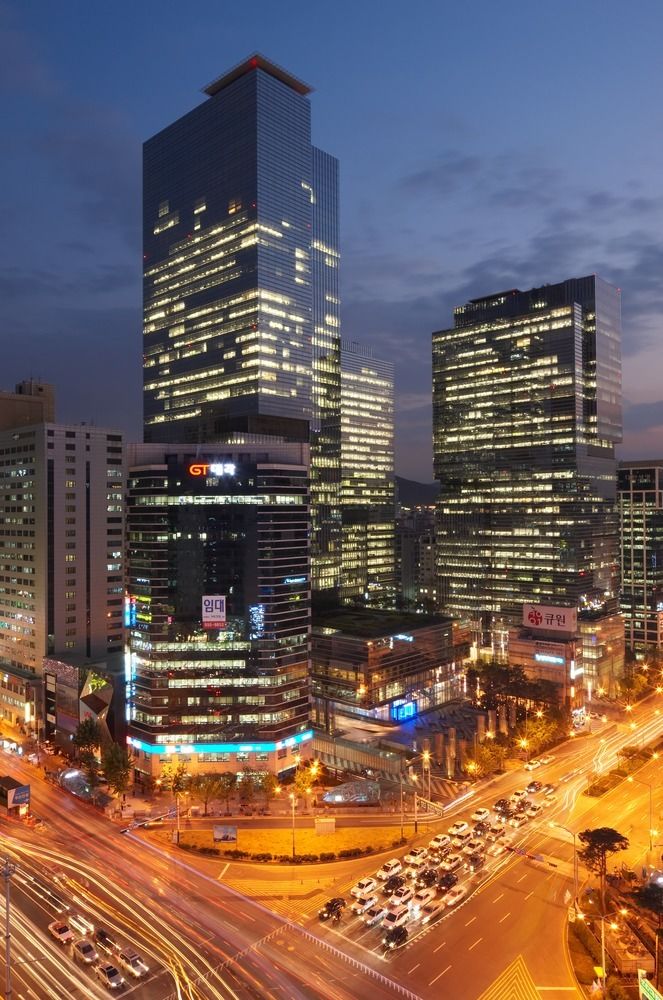
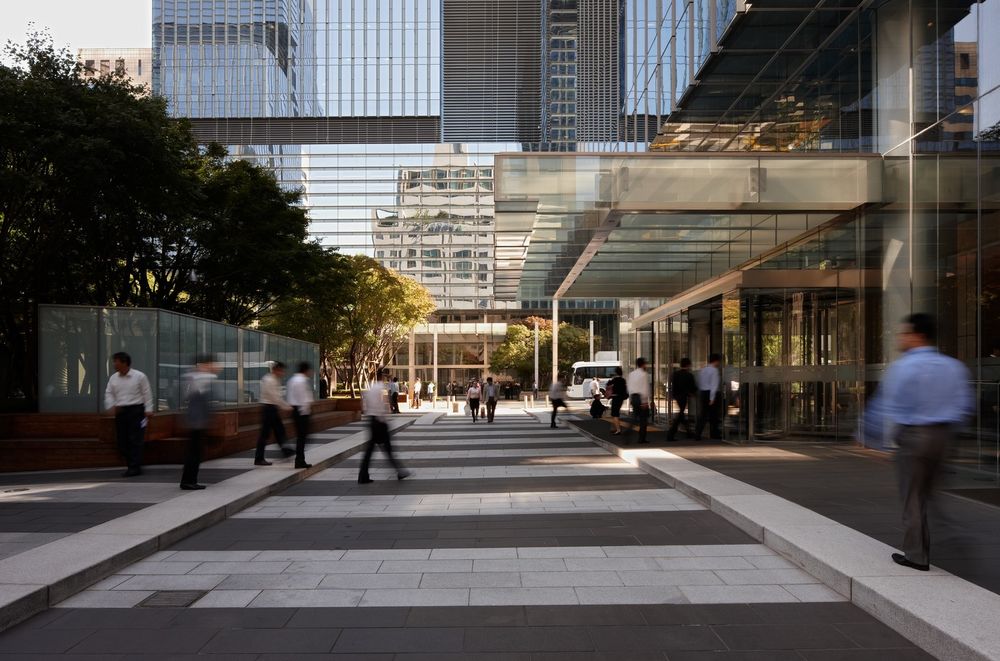
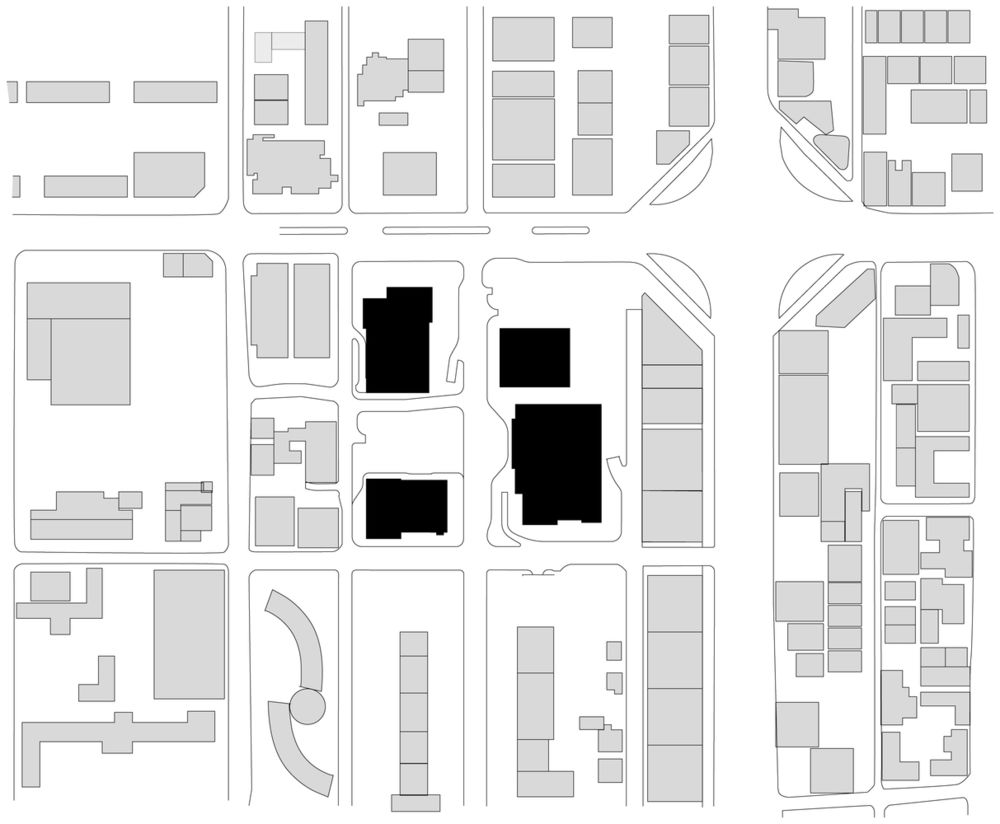
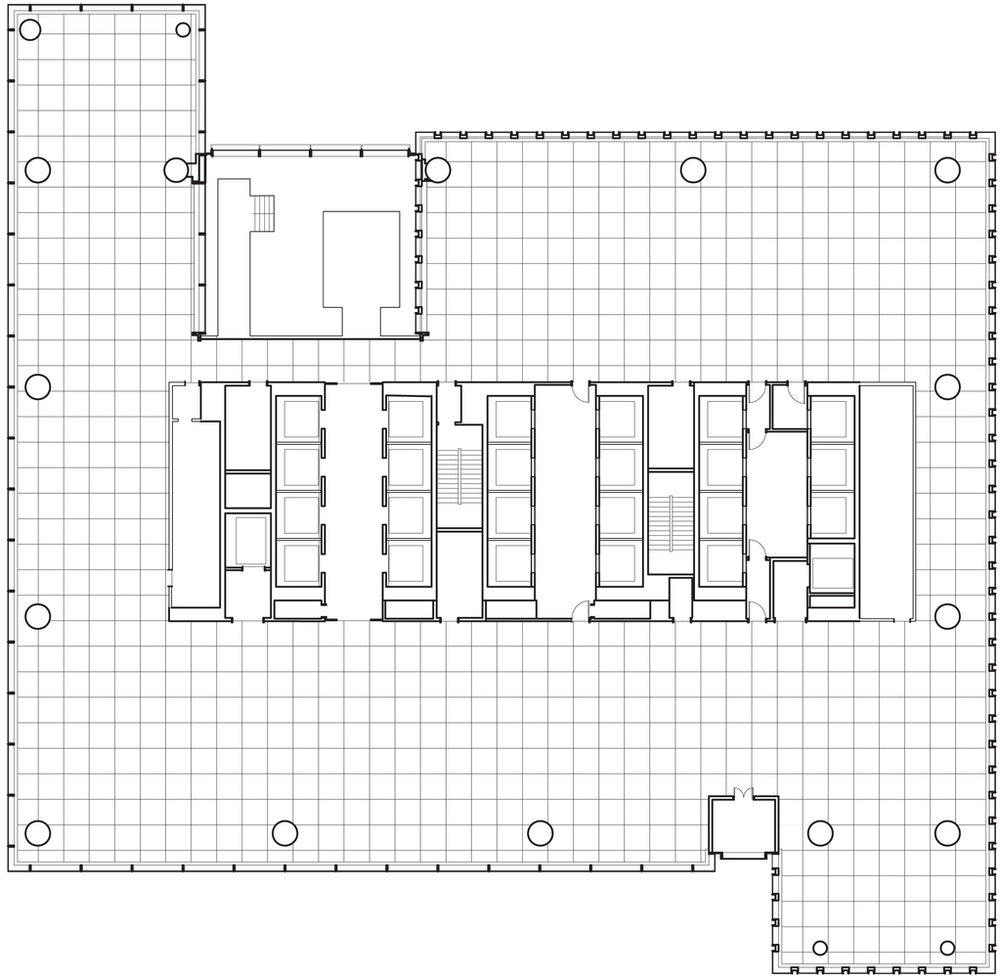
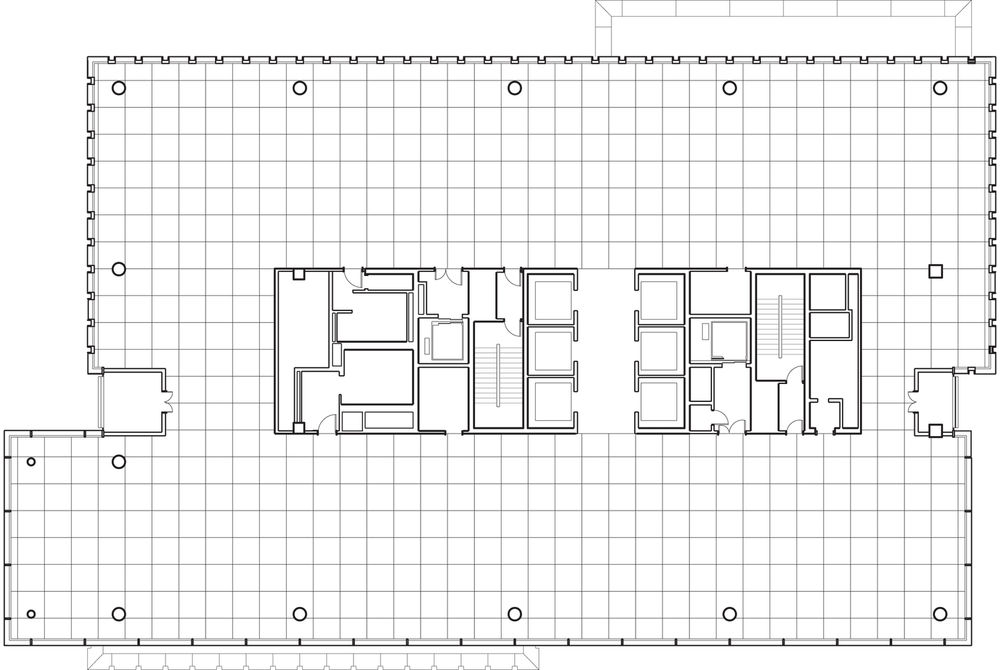
Architects KPF
Location Seoul, South Korea
Area 239000.0 m2
Project Year 2017
Photographs Jae Seong Lee
Category Showroom


